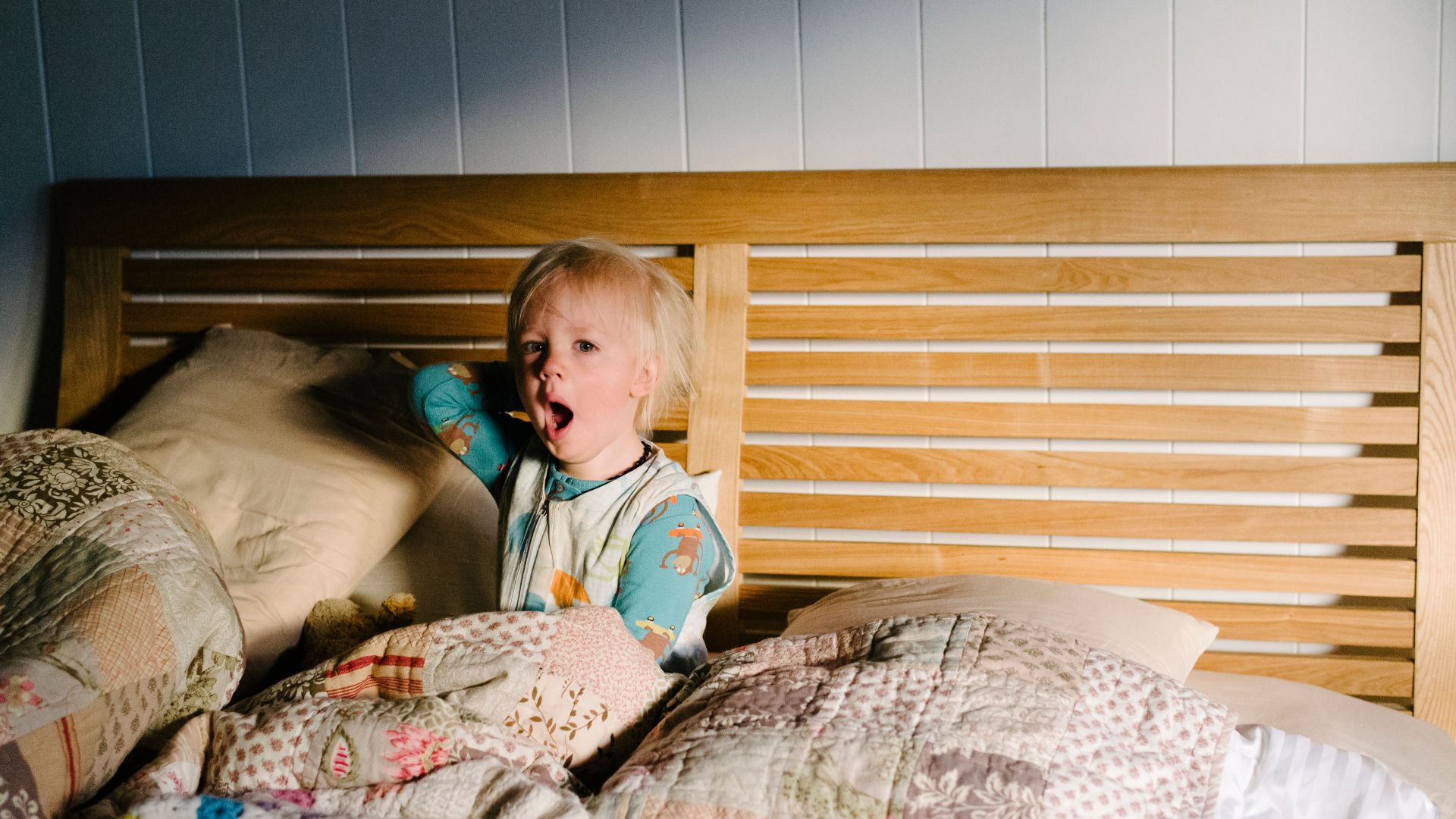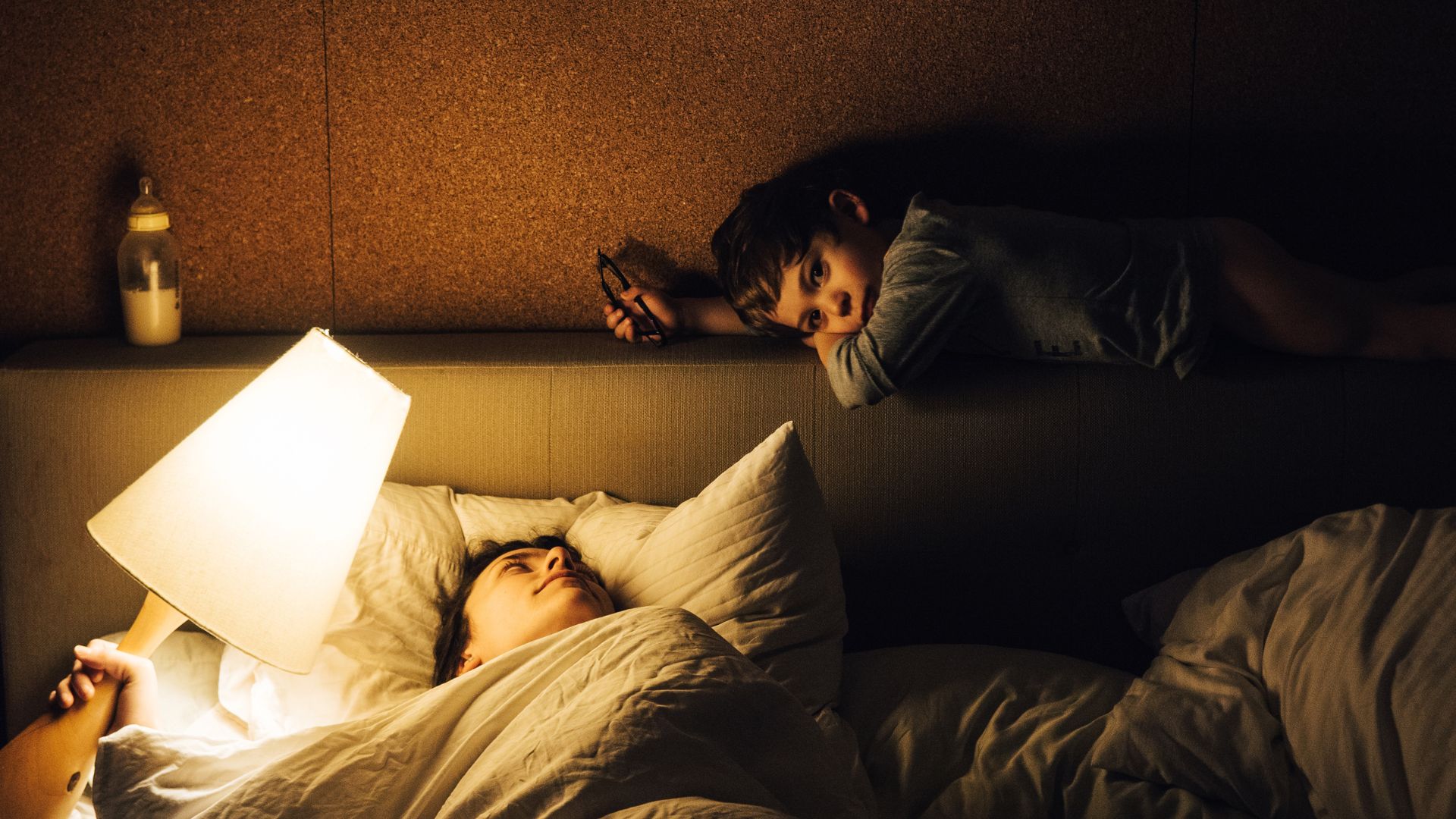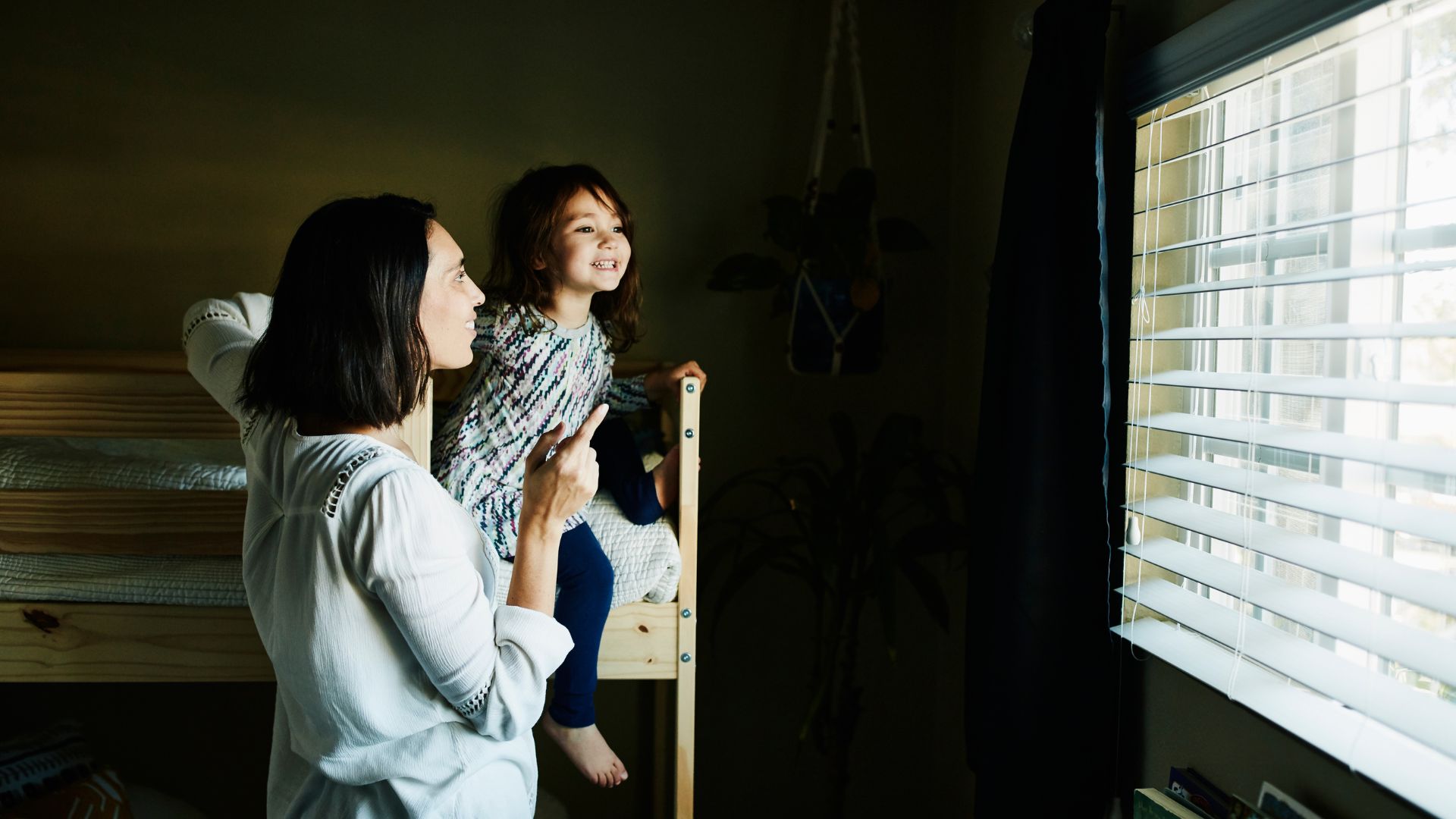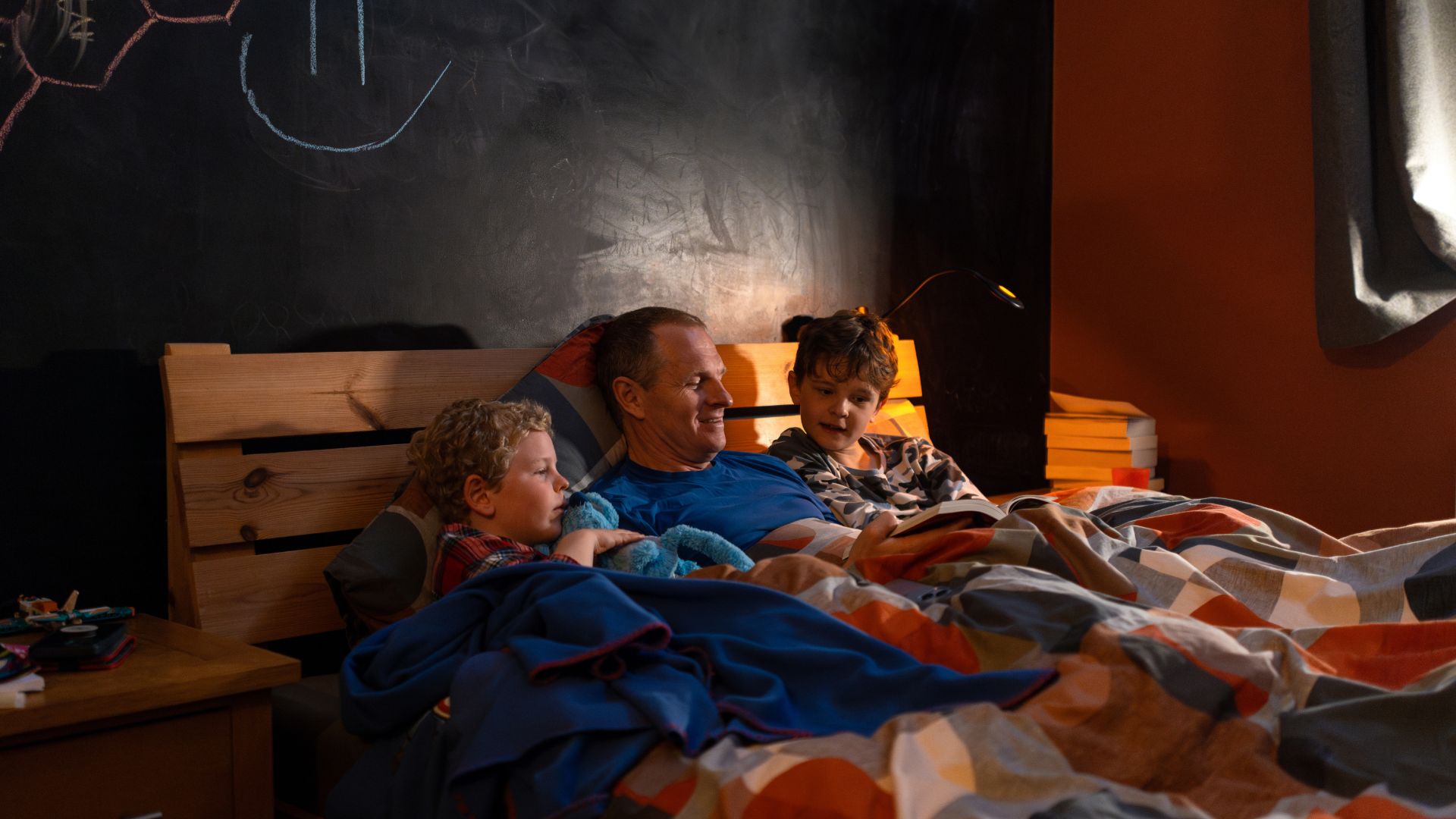Clocks go back this weekend — the top 3 problems parents will face with their kids sleep and how to fix them fast
The clocks changing by an hour can cause sleep issues for your children, but our expert tips will get them back on track

The American Academy of Sleep Medicine recommends the following amount of sleep on a regular basis for optimal health:
- 4 months to 12 months: 12 to 16 hours sleep per 24 hours (including naps)
- 1 to 2 years: 11 to 14 hours sleep per 24 hours (including naps)
- 3 to 5 years: 10 to 13 hours of sleep per 24 hours (including naps)
- 6 to 12 years: 9 to 12 hours sleep per 24 hours
- 13 to 18 years: 8 to 10 Hours of sleep per 24 hours
While many people delight in the extra hour of sleep they get from the clocks going back by one hour this Sunday at 2am to mark the end of Daylight Savings Time, there's one very large group that may not be quite so happy about it: parents.
That's because the clocks changing can impact children's sleep in some significant ways, and not just on the night the transition happens. And, as parents are aware, getting a good night's rest is crucial for the growth, development and well-being of children.
So for our Fall Back into Great Sleep campaign, we've spoken to Dr. Jessica Klein, paediatrician and medical advisor at Barrière, and our own senior sleep editor and certified sleep science coach, Claire Davies, to get more details on the issues parents might come up against, and for tips on how to tackle them quickly.
Top 3 problems parents will face with their kids' sleep
Early wake-ups
"When the clocks fall back, the external time changes instantly, but a child’s internal circadian rhythm does not," Dr. Klein says.
"Their body still releases melatonin and cortisol according to the 'old time,' so the morning wake signal hits an hour early,"
That turned out to be a huge mistake this year as my son really struggled with the extra hour
The paediatrician tells us that children may wake up anywhere from 30 to 90 minutes earlier than usual when the clocks go back an hour: "Suddenly 6 am wakeups become 5 am."
Claire explains that she became relaxed about the clocks going back in the last weekend of October in the UK (where she is based) because her three-year-old son "sailed through the clocks going back the last two years with zero impact on his sleep schedule."
Get instant access to breaking news, the hottest reviews, great deals and helpful tips.

“That turned out to be a huge mistake this year as my son really struggled with the extra hour," she tells us.
"He woke at 6.30 am as normal, but because the clocks had fallen back it was actually 5.30am. My kid does not cope well with lost sleep (he loves an 11-hour snooze at night), so this set a disastrous tone for the rest of the day."
Indeed, Dr. Klein notes that earlier wake ups can "contribute to overtiredness by afternoon, misbehavior, and difficult bedtimes."
Disrupted sleep schedules and restless sleep
This disrupted circadian rhythm can influence childrens' sleep schedule as a whole, which Claire recently discovered.
Melatonin is a sleep hormone that is released in our bodies in reaction to certain stimuli, like the dark and the time of day. It's responsible for making us feel sleepy at bedtime, while cortisol is released in the mornings to wake us up.
“For three days after the clocks went back we were in a pattern of super-early wake-ups while trying to extend bedtime a little each night," she says, adding that while his body clock eventually regulated and they returned to a 7.30pm to 6.30am sleep schedule, her son "definitely lost a few hours’ sleep in the days prior because I didn’t prepare him well enough for the clocks going back this year. Lesson learned.”
And, even if your child typically sleeps through the night, the clocks going back may result in nighttime awakenings after the transition.
"Due to a child’s sleep schedule misaligning with the new time, they may wake up frequently during the night or toss and turn," explains Dr. Klein.
She says that this occurs because the release of melatonin may taper off too early and cortisol can spike at times when your child's body experts to be asleep.
"This restless sleep can contribute to irritability and inability to concentrate the next day for the child," the pediatrician adds.

Shortened or skipped naps
"After the clocks go back, the timing of daytime sleep often gets thrown off, so naps may be shorter than usual or skipped entirely," Dr Klein says, explaining that she often sees this in younger children over the week after the time change.
Children may not feel sleepy during the normal nap window
Again, this is down to a misaligned circadian rhythm.
"Because their internal clock hasn’t shifted yet, children may not feel sleepy during the normal nap window. This can leave them overtired by late afternoon and make it harder to fall asleep at their usual time," she says.
Claire says that by early afternoon on the Sunday the clocks changed in the UK, her son's "energy levels were flagging, he was off his food, and he was having some big emotional outbursts over the tiniest of things," however, by this point in the day, she was unable to let him nap, because, as many parents will be able to relate to, "just a power nap will give him enough energy to party until midnight."
How to fix those sleep issues fast
"Sleep is one of the most critical foundations for a child’s health, not just for mood and behavior, but also for immunity and development," says Dr. Klein, who explains that "kids who regularly get sufficient, high-quality sleep tend to get sick less often and recover faster when they do."
If you're struggling with any of the issues we've outlined above, here are some expert tips to get your child's sleep back on track.
Gently shift a child’s internal clock using predictable cues
Prevention is better than cure, so if you're reading this on Friday ahead of the weekend, “try pushing their bedtime back by at least 20 minutes tonight, and the same tomorrow night," Claire suggests.
"Wake them 20 minutes later in the morning too, and also bring their snack times and meal times forward in line with their new bedtime. That way you’ll only have a 20-minute deficit (and not a whole hour) to cope with on Sunday," she explains.
However, if you notice that wake up times are too early, or you're seeing an increase in nighttime disturbances (or both!) after the clocks go back this weekend, Dr. Klein recommends using predictable cues to adjust your child's circadian rhythm to match the new time.

But the key is to do this gently, she explains: "Gradually exposing them to bright light in the morning and adjusting bedtime in small increments can help their body recognize the new schedule and settle into a consistent rhythm."
Morning light exposure triggers the production of hormones such as cortisol to help us feel alert, and helps regulate our circadian rhythm so that our bodies know when to release melatonin later in the day.
Getting your child's sleep schedule back on track, and maintaining consistent sleep and wake times could also help influence their behavior the next day too. One Australian study of children aged 5-10 years, found that inconsistent sleep schedules were associated with behavioral difficulties.
Stick to a calming bedtime routine
"Maintaining a calming, consistent bedtime routine also signals that sleep is approaching and supports natural melatonin production," says Dr. Klein.
Sleep consultant and founder of The Sleep Works, Maryanne Taylor previously told us that when it comes to nighttime routine for kids, parents may want to keep the same 30-40 minute wind-down each night, because "predictability is comforting and also trains the brain to expect sleep."
Creating healthy sleep habits starts with simple routines
Limiting screens before bed and following the same calming steps each night helps kids wind down and fall asleep more easily, especially when the routine is something they enjoy," she explains, adding that reading a favorite bedtime story is a great option.
Research shows that a bedtime routine can improve various aspects of young children's sleep, including an earlier bedtime, decreased sleep onset latency (the time it takes to fall asleep), reduced nighttime awakenings and increased sleep duration.
But there's no need to feel pressure to create an elaborate pre-bed schedule to ensure your child feels drowsy at the right time.
"Creating healthy sleep habits starts with simple routines kids can realistically stick to, and consistency matters more than perfection," Dr. Klein says.

Adjust nap times gradually
For parents who are finding that nap times are shorter or non-existent in the days after the clocks go back, and that this is causing issues come bedtime, Dr. Klein says that "adjusting nap timing gradually can make a big difference."
She suggests that parents observe their child's sleepy cues and "shift nap start times by 10- 15 minutes per day if needed, keeping the overall nap length predictable."
It might be a small adjustment, but Dr. Klein explains that it "aligns the nap window with the child’s natural sleepiness, preventing overtiredness and avoiding bedtime disruption. Consistency is key!"
Will the clock change cause jet lag for children and adults?

Jet lag is never great, but at least you're normally on your way to, or returning from a vacation.
Unfortunately, Dr. Klein explains that the clocks going back this weekend "can cause a mild form of jet lag in both children and adults."
The clocks going back this weekend can cause a mild form of jet lag in both children and adults
"When the clock 'falls back,' the body’s internal circadian rhythms, or sleep-wake-cycles, remain on the original schedule," she says.
This is similar to the way in which our circadian rhythm remains aligned with the time zone we traveled from when we arrive in a destination in a different time zone, causing jet lag.
The good news is, the paediatrician explains that what you'll experience from the seasonal clock change is "usually less severe than traveling across multiple time zones."
However, it is worth considered the sleep tips our experts have provided here, as Dr. Klein explains that "in children, whose circadian systems are still developing, this mismatch can make it harder to stay asleep throughout the night or wake up at the usual time in the morning. Adults may experience similar disruptions, but their rhythms are generally more flexible."
Jenny Haward is a U.K. based freelance journalist and editor with more than 15 years of experience in digital and print media. Her work has appeared in PEOPLE, Newsweek, Huffpost, Stylist, ELLE, The Sydney Morning Herald and more. Jenny specializes in health, wellness and lifestyle, taking a particular interest in sleep.
You must confirm your public display name before commenting
Please logout and then login again, you will then be prompted to enter your display name.
 Club Benefits
Club Benefits





